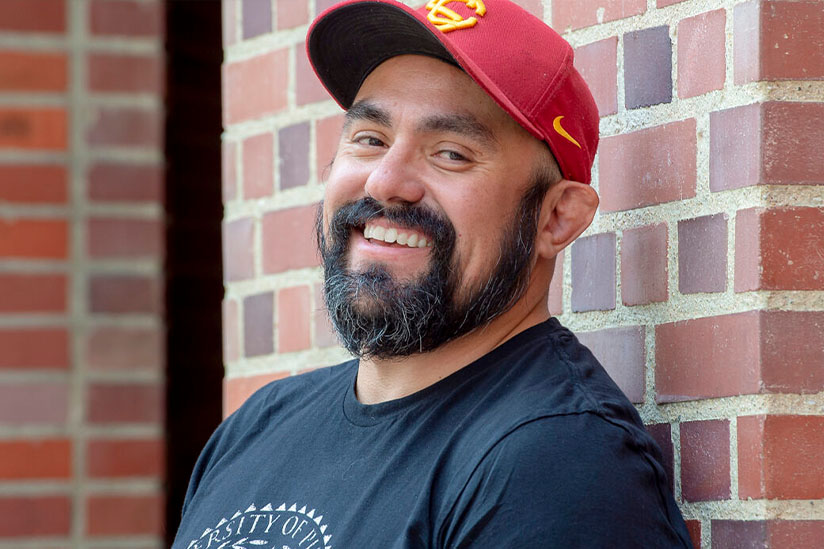Undergraduate students half his age sometimes mistake Orlando Ambriz for a professor. The retired Green Beret flips those mistakes into opportunities.
‘I like to talk about subjects that are sensitive. That’s the stuff that really does affect veterans.” For a seemingly shy Green Beret, it’s a novel way to open a conversation.
At 41, Orlando Ambriz is one of about a thousand student veterans at USC. As an older student, he sometimes feels like an interloper. But he consciously pushes past introversion and misunderstandings – always seeking connection.
“I’ve had conversations with younger students,” he said. “They want advice. That feels good because I’ve gotten into some pretty deep conversations with them about how to make their parents understand what they want to do in life.”
Those positive feelings are usually accompanied by a sense of separation. Once he tells classmates that he’s a veteran who has experienced combat, he feels their perception about him shift. A certain distance arises; his fellow students seem unsure how to treat him.
For Ambriz’ part, the college environment isn’t one in which he always feels comfortable, either. Higher education was not the path Ambriz pursued early in his life. The son of immigrants, he grew up in Orange County neighborhoods where he didn’t feel safe.
Ambriz’s inspirational story
Ambriz joined the Navy in the late 1990s, then rechanneled his interest to the Army so he could become a Green Beret. Among his distinctions are the Bronze Star Medal, Purple Heart, Meritorious Medal and Joint Service Commendation Medal.
During almost two decades in the military, he deployed to both Iraq and Afghanistan. He suffered a gunshot wound. An explosion left him with a traumatic brain injury and post-traumatic stress.
He’s taken part in an intensive program to help manage PTSD symptoms. The words “constant,” “sorrowful,” and “mournful” come up frequently as he describes the ongoing adjustment process.
“I always had to face the door looking for an oncoming threat,” he said. “I don’t do that any more. I’ve overcome that, thank God.”
